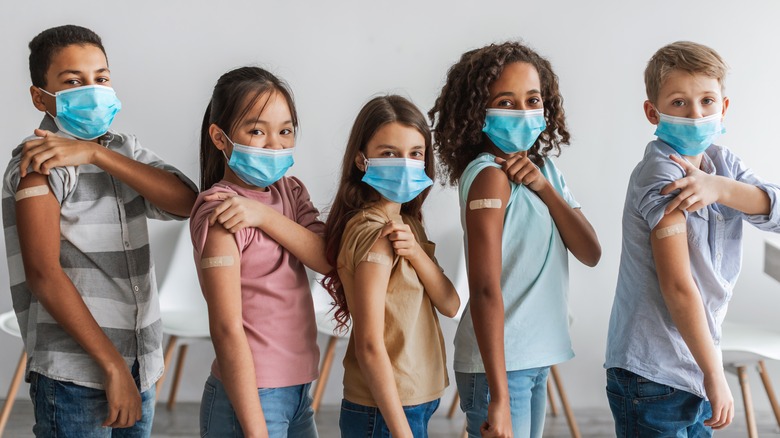Why Experts Say Our Public Health System Is Vulnerable And In Need Of Serious Help
As cases of monkeypox continue to rise in the United States (via Centers for Disease Control and Prevention), public health experts tell CNN that the fate of U.S. public health this fall depends on vaccines. However, the need for vaccines strains local and state health departments, which already lack proper funding and staff. Although the U.S. Department of the Treasury gave funds to states and local governments to address COVID-19, the money doesn't cover the current monkeypox outbreak, according to CNN.
Staff shortages in public health are also posing a threat to the nation's public health. A 2021 survey by the de Beaumont Foundation found that more than half of public health workers are suffering from symptoms of post-traumatic stress disorder. Some public health workers are leaving their positions because of burnout and stress. CNN notes that the U.S. public health system needs 80,000 more full-time staff members to ensure basic community services.
Now that polio was found in wastewater in New York state, New York City Mayor Eric Adams called the convergence of COVID-19, monkeypox, and polio a "trifecta," according to PBS. New York City health officials said the best protection against these diseases is vaccination.
Vaccinations are key to public health
Vaccine hesitancy and misinformation have presented a public health problem, and the pandemic resulted in many children missing their routine vaccines (via CNN). According to the World Health Organization, 25 million children didn't receive their vaccines in 2021. These vaccines protect against diseases such as diphtheria and measles.
A 2008 article in Pharmacy & Therapeutics warned that when people forgo their vaccines, it could pose a public health risk. For the public to be protected from certain diseases with herd immunity, a certain percentage (generally around 90%) of the public needs to be vaccinated. That allows those who haven't been vaccinated to be protected as well.
"However, when a sufficient number of members of a community forgo vaccination, the percentage of immunized individuals can fall below the threshold for herd immunity, which gives the infectious organism a chance to reestablish itself," wrote the article's author, Dr. Robert Field. Field also mentioned that parents might not understand the threat of certain diseases that they might have forgotten about, such as polio. According to CNN, children can be protected from polio if they get four doses of the vaccine before they turn six.


